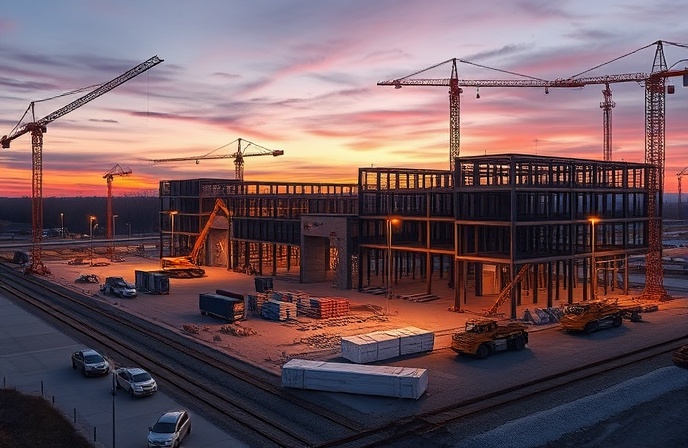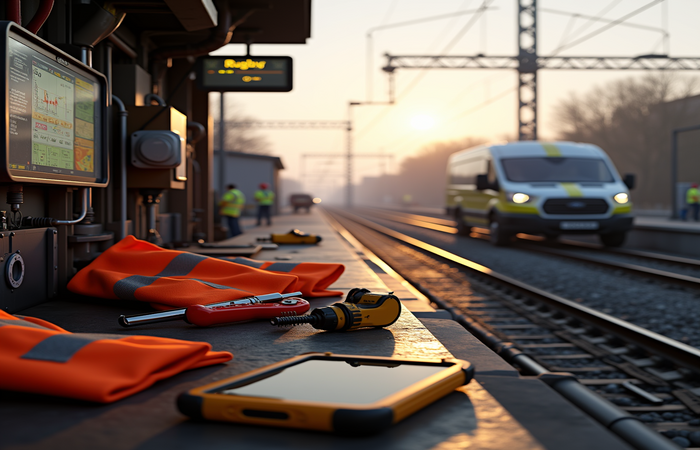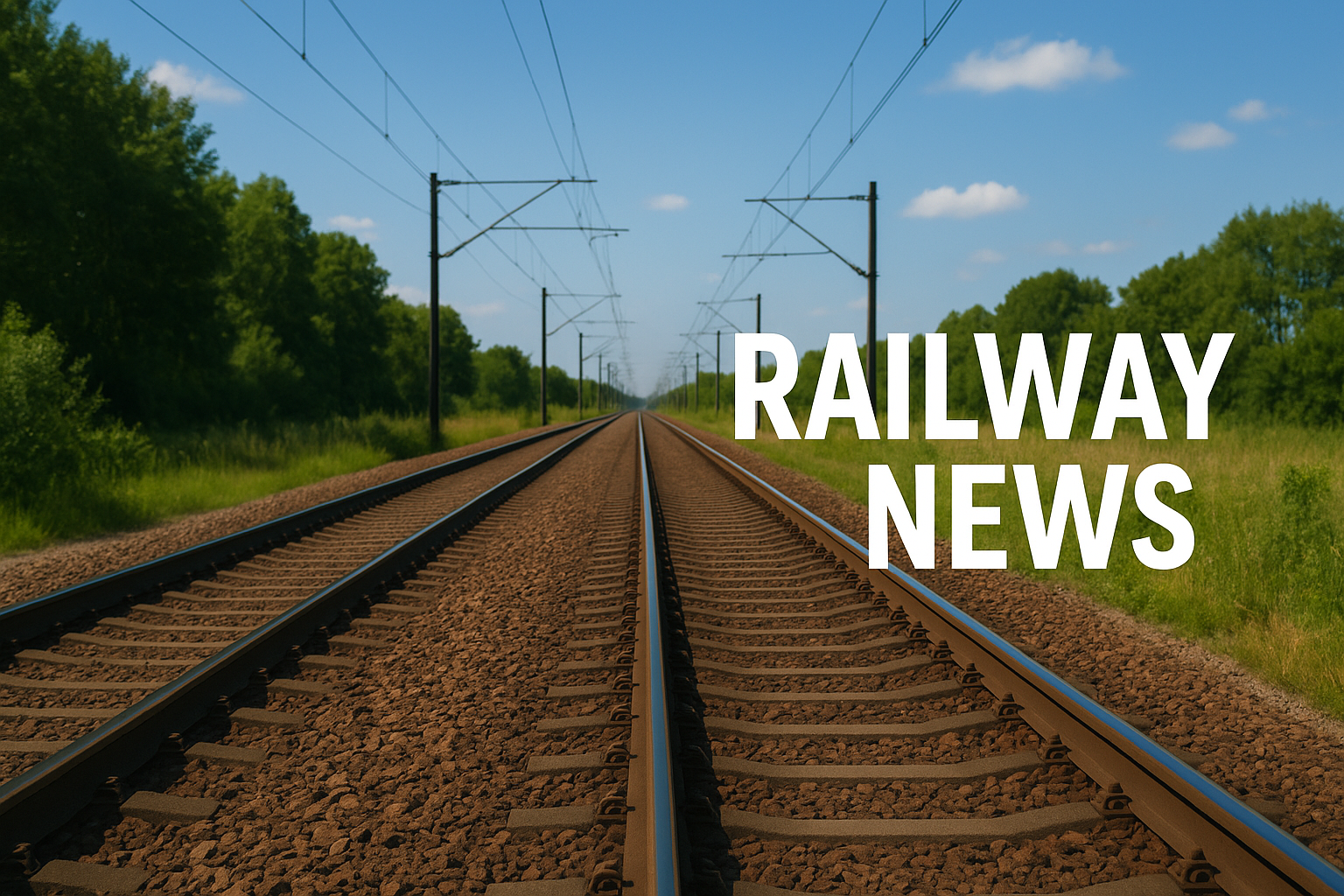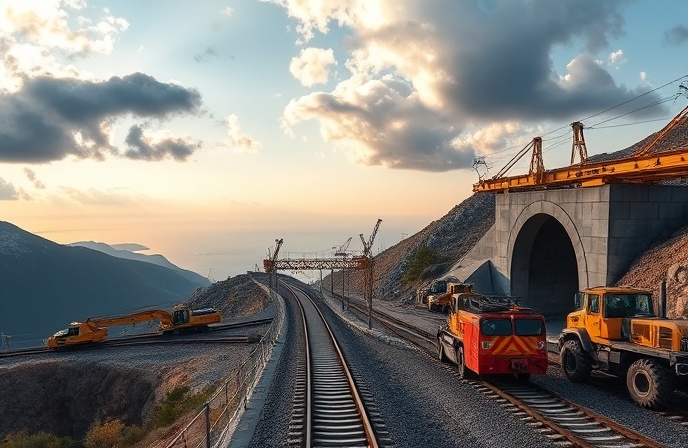NJ Transit: Northern Rail Facility RFQ & Infrastructure Upgrade
NJ Transit seeks bids for a new Northern Rail maintenance facility, replacing the flood-prone Wood-Ridge site. The project aims to improve maintenance capabilities and resilience.

NJ Transit Launches RFQ for New Northern Rail Maintenance Facility
New Jersey Transit (NJ Transit) has announced a significant step forward in modernizing its infrastructure with the release of a Request for Qualifications (RFQ) for the design, construction, and commissioning of the Northern Rail Maintenance of Way facility in Clifton, New Jersey. The RFQ, issued yesterday, marks the initial phase of a project that aims to replace the aging and flood-prone Wood-Ridge facility. This development, due in large part to the urgent need for improved maintenance capabilities and resilience in the face of climate change, signals NJ Transit’s commitment to enhancing operational efficiency and ensuring the long-term reliability of its rail network. The due date for submissions is October 6th, with additional evaluation criteria accessible on the NJ Transit Bid Express webpage. This article will explore the specifics of the project and its significance within the broader context of railway infrastructure upgrades.
Project Scope and Objectives
The Northern Rail Maintenance of Way facility project encompasses a comprehensive scope, including the demolition of existing structures, construction of three new buildings across two NJ Transit sites, and extensive site improvements. The design and construction will need to accommodate a range of functionalities, including track maintenance equipment and personnel. Site grading will be a key component, ensuring proper drainage and ground stability. The project’s success is predicated on efficient integration of maintenance equipment and utilities. This project specifically focuses on enhancing maintenance services for the rail network in the northern section of the NJ Transit system, providing a base for comprehensive repairs and preventative maintenance activities, critical for system reliability and service. It directly addresses the operational needs of the railway, from vehicle upkeep to track inspections.
Prequalification and Procurement Process
The RFQ serves as the initial phase in a rigorous prequalification process. NJ Transit will evaluate submissions to identify the most qualified firms capable of undertaking this complex project. This process is crucial, as it will inform the selection of contractors for the subsequent Request for Proposals (RFP) stage, which will invite shortlisted firms to submit detailed proposals outlining their approach, technical expertise, and cost estimates. The prequalification process itself is designed to ensure that only firms with proven experience, financial stability, and the necessary resources are considered for the project. This ensures that the selected contractors will effectively handle project demands while contributing to quality construction and effective functionality. The specific details on the evaluation criteria are available on the NJ Transit Bid Express webpage.
Addressing Environmental and Operational Challenges
The primary driver for this project is the replacement of the Wood-Ridge facility, which is susceptible to flooding. The new facility will be located in a more strategic location and will be designed with enhanced flood protection measures to mitigate the impact of severe weather events. This demonstrates NJ Transit’s proactive approach to climate resilience. By investing in a modern, climate-resilient facility, NJ Transit aims to reduce service disruptions, minimize maintenance costs, and ensure the continued operation of its vital transportation services, even during extreme weather. This project also indicates a commitment to maintaining and enhancing operational efficiency within the NJ Transit rail system.
Conclusion
The release of the RFQ for the Northern Rail Maintenance of Way facility represents a strategic investment in NJ Transit’s future. The project will modernize its maintenance capabilities and enhance the resilience of its infrastructure. It highlights the critical need for proactive investment in railway infrastructure to ensure reliable service, particularly in the face of increasingly unpredictable weather patterns. The successful execution of this project will have significant implications for the efficiency and safety of NJ Transit’s rail network. Improved infrastructure and more streamlined processes will contribute to fewer service delays and improve overall passenger experience. Further development in maintenance procedures, combined with better infrastructure, signals long-term improvements for reliability. The project reflects the ongoing evolution of rail infrastructure to better adapt to environmental pressures, and it will hopefully lead to a more reliable and efficient transportation system for the benefit of passengers and freight operations alike.




